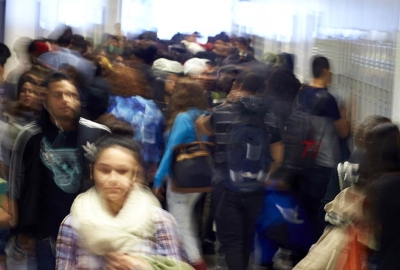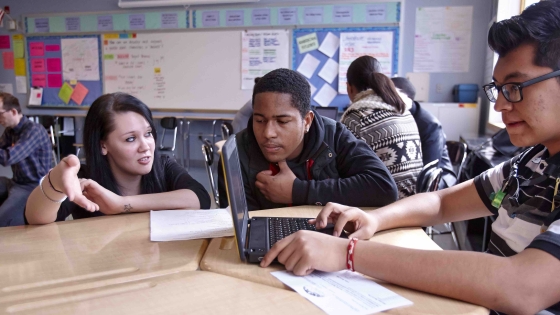
Exploring Key Levers to Boost College Readiness Among Black and Latino Males in NYC
By Adriana Villavicencio, Dyuti Bhattacharya and Brandon Guidry (July 2013)
Increasingly, school districts are recognizing that high school graduation rates may not be the ultimate measure of success, as evidence accumulates that students who obtain a college degree do markedly better than students who only graduate from high school. In New York City, while graduation rates have increased dramatically over the last decade, college readiness rates remain troublingly low, especially for young men of color. Among students scheduled to graduate in 2010, for example, only 9 percent of Black males and 11 percent of Latino males graduated college ready.
Our report, Moving the Needle: Exploring Key Levers to Boost College Readiness Among Black and Latino Males in New York City, examines the trajectory of Black and Latino young men on their path to college, zeroing in on points along that path where schools might provide more effective support. The report describes college-related outcomes and other indicators that help predict college readiness for Black and Latino male students over time, and discusses key contextual factors that underlie these educational outcomes.
This paper was the first in our evaluation of the Expanded Success Initiative (ESI), a citywide effort providing resources to 40 schools with the aim of improving college and career readiness among Black and Latino young men. The final chapter of Moving the Needle uses our findings to reflect on potential directions for ESI schools as they work to support Black and Latino young men on the path to college and successful careers.
For more on college readiness and success in New York City, read this Spotlight post examining trends in high school graduation and college enrollment rates.

